TikTok Takeover
January 4, 2021
As internet applications increase in popularity, TikTok, the newest social media to take over the world by storm, has had an exponential impact on teenagers among many other demographic groups, especially students in the Cherry Hill East community. Having an impact on all individuals — teens, children, parents, and even civil servants like teachers and government officials — TikTok has made its way across the globe and onto the phones of over 850 million people. Due to the application’s addicting videos, educational opportunities, and relatable content, TikTok is now at the forefront of all entertainment and advertising services. This retrospective multi-media package will cover how this new social media has taken the world by storm since its launch just a few years ago and the perspectives of many of the application’s users in our community.
The History of TikTok
Nicole Vital (’22)
Tik Tok: an app almost everyone in 2020 is familiar with and an app that most everyone uses. As of October, Tik Tok estimates that it has about 850 million active monthly users, 41 million of those users being from the United States. Also released in October, Tik Tok is the third most used app among teenagers with 69% engagement, up nearly 7% since Spring 2020. The app has seen huge success, making 5.6 billion dollars in only the first quarter of 2020 which has been a huge uptick from the 3 billion dollar profit the app made in 2019. Quarantine has been hugely beneficial for the app as well, drawing the attention of bored internet users across the world. However, what may seem like an overnight success has actually been in the works for many years, building to reach the current popularity that we see today. Tik Tok has slowly grown since 2014, starting life as the lip-syncing app known as Musical.ly.
Tik Tok began in Shanghai, launched by two entrepreneurs, Alex Zhu and Luyu Yang. The app was successful in China, and had strong links to the U.S. market as well. Musical.ly began as a 15 second lip-syncing platform. Musical.ly, unlike the current version of Tik Tok, did not feature much original content. The biggest creators on the platform were known for lip syncing and video clip transitions as well as edits that came with them. In 2016, while Musical.ly continued to perform well on the U.S. app store, Chinese tech giant ByteDance launched a specific service much like Musical.ly, only for Chinese users. The new app was called Douyin and attracted 100 million users in China as well as Thailand in the course of a year. ByteDance then decided to expand further under rebranding, the new brand name being Tik Tok. With the sudden success of Douyin, ByteDance was able to purchase Musical.ly from Zhu and Yang and completely transform the platform into the social media giant it is today.
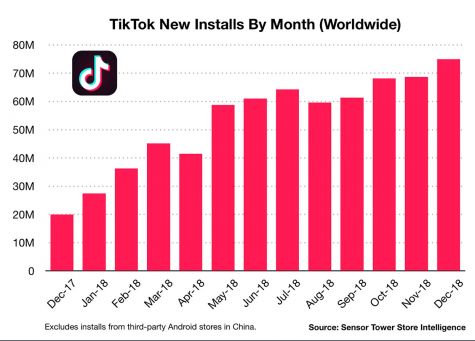
Tik Tok’s massive success in the U.S. since its rebrand in 2018 has raised security questions that recently came to life, particularly this April. The Trump administration was particularly wary of it, because of its Chinese ownership and the legal issues regarding how much access the Chinese government had to U.S. user data along with U.S. content moderation. In an effort to appease the U.S. government, ByteDance hired a new CEO, Kevin Mayer, who is an American ex-Disney executive.
However, threats of a ban still persisted from the Trump administration, unless the app could close a deal with an American company Microsoft being the favored buyer. The sale saga continued for many months with multiple top buyers getting involved including Walmart and Oracle, a tech company highly endorsed by Trump. Eventually, a partnership deal was struck by Walmart, Oracle and ByteDance, where Oracle took a 12.5% stake and now holds all U.S. user data to comply with security standards. Walmart also has a 7.5% stake, while ByteDance still remains the majority shareholder of the company. The deal was agreed upon in September after many ban threats from the president.
Musical.ly created a new crop of influencers for audiences to look up to. These creators gathered millions of followers for lip syncing videos, some of the most well known names on the app being Jacob Sartorius, Cameron Dallas, Jojo Siwa, Mackenzie Ziegler, and Baby Ariel (to name a few). Tik Tok has created a similar generation of influencers, known primarily for dancing. TikTokers like Charli D’Amelio, Chase Hudson, Addison Rae, Bryce Hall, and Noah Beck have gained huge platforms with millions of followers. Charli D’Amelio recently made headlines acquiring 100 million followers, surpassing many other creators on the app. These Tik Tok stars have also gained a presence on a variety of platforms including YouTube and Instagram. Content houses have been created across the world including the Hype and Sway houses based in Los Angeles and the Wave House, featuring British creators based in England.
Clearly, Tik Tok is not going away. It is an unconventional platform that could give any user a voice and a large following. The Tik Tok algorithm is the key reason for its success, giving users a unique for you page created by the videos that the user likes, comments on, and shares. The for you page, combined with the user created following page built upon the accounts the user follows make for hours of addicting entertainment that make it hard to close the app and easy to keep scrolling through. It’s success is globally recognized as Instagram and Snapchat have copied the unique format to make reels (on Instagram) and the spotlight page (on Snapchat). Tik Tok’s popularity is set to continue soaring, garnering more downloads as more users share videos with family and friends. Only time will tell what’s next for this billion dollar social media superstar.
The ‘For You’ feed really is for you
TikTok, a platform that is taking over the time and attention of teenagers across the globe since 2016. The app continues to gain more momentum as the years go by, now with around 850 million users.
The first feature TikTok serves to users is its “For You” page. This page acts as a homepage, where users can scroll and browse through TikTok’s most viral and trending videos. Although users’ For You pages could potentially be fairly similar, the page contains an algorithm, a system of equations that creates an individualized page for each user. This system generates a stream of TikToks according to preferences. The way this algorithm worked was unknown until TikTok released a blog post in June confirming theories many users had.
In your For You feed, “you’re presented with a stream of videos curated to your interests, making it easy to find content and creators you love” according to TikTok’s blog series about the For You Feed. Each feed is formed by a system of recommendations that delivers content that each user will likely be interested in.
Factors like user interactions (leaving a like, comment, or watching a video all the way through/multiple times), video information (captions, hashtags, or sounds behind videos), and account settings (language preferences or country setting) are what generate this system of recommendations in order to personalize each user’s page.
“Every new interaction helps the system learn about your interests and suggest content – so the best way to curate your For You feed is to simply use and enjoy the app” confirms the TikTok blog series.
As one scrolls through the For You feed, TikTok offers more options than liking, commenting, saving, and sharing a video, they provide an option to select if you are not interested in the video or if you would like to hide videos from a specific user or sound.
Another aspect to notice about the For You page is the fact that distinct sounds come along with specific trends. All throughout November, TikTok users have seen the ‘Corvette Corvette’ dance, the ‘Blow Your Mind’ jumping trend, and the ‘Tricky this or that’ challenge. According to TikTok’s second part of their For You Feed blog, these trends go viral based on how engaging the videos are and the songs behind them. TikTok advises creators to measure their video performance and connect with the right audiences if they want their videos to reach For You pages far and wide.
Watch the ‘Corvette Corvette’ dance below.
@gracekellyannGuess where I’m going for the first time today?! 👀 ##foryou ##fyp ##foru♬ Adderall (Corvette Corvette) – Popp Hunna
Watch the ‘Blow Your Mind’ jumping trend below.
@marialaura_gm##duet ##fyp ##yoenlafiesta♬ Blow Your Mind (Mwahchallenge) – Dua Lipa
Watch the ‘Tricky this or that’ challenge below.
@annaxsitarthis or that ✨♬ It’s Tricky – RUN DMC
The Negatives of TikTok
Social media applications like TikTok provide users with entertainment, a creative outlet, and useful information, but the cons of these new forms of social media continue to grow. TikTok, which was created in September of 2016, recently sprung into the spotlight of everyday use for many teenagers across the globe. With the exponential growth of the application, the harms are more evident than ever before.
The epitome of the twenty-first century lays deeply within technology and cyber networking. The newest addition to the widely used category of social media — already consisting of Instagram, Facebook, Snapchat, and Twitter — is TikTok. TikTok is a Chinese video-sharing social networking service owned by ByteDance. The social media platform is used to make a variety of short videos with genres like dance, comedy, and education that have a duration from 3 to 60 seconds.
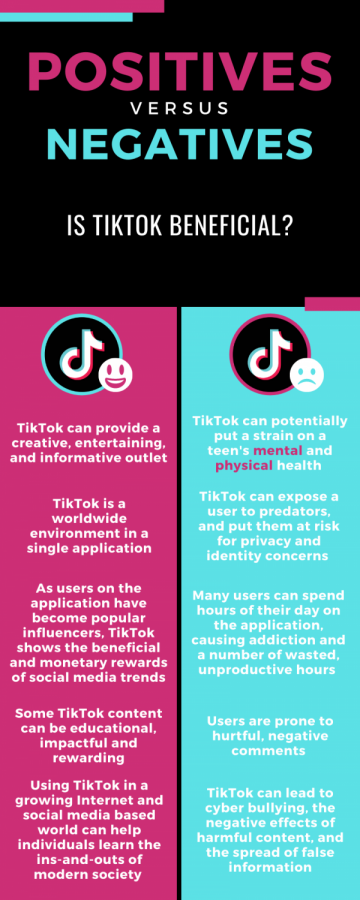 Although many types of research claim that TikTok can boost a child’s self-esteem, share convenient information, educate, and connect alike individuals among many other beneficial bases, one of the most prevalent concerns in regards to this platform is the effect it can potentially have on one’s mental health.
Although many types of research claim that TikTok can boost a child’s self-esteem, share convenient information, educate, and connect alike individuals among many other beneficial bases, one of the most prevalent concerns in regards to this platform is the effect it can potentially have on one’s mental health.
With the growth of influence and followers, hate speech and negative comments come flushing into an individual’s comment section. Negative feedback to a video can severely impact one’s self-esteem and confidence, even resulting in self-harm or body image issues. In severe cases, when a user receives hateful comments on a post they previously thought would be impacting and sincere, a user could be left for years later debating whether or not they should try their best, step out of their comfort zone, or even move forward with something they have worked on. Additionally, TikTok can provide users with the opportunity to engage in cyberbullying. Some students make fun of each other’s videos and make videos just to ridicule their fellow students.
Like many social media platforms, there is always a risk of unwanted exposure, especially for minors. Combined with the growing number of users of all ages, TikTok can potentially pose harm to youth. Some videos can come across as triggering content on the app that could promote issues like exclusion, eating disorders, and even self-harm. When mature individuals send explicit messages and images to children, the entire application can spiral into a problematic downfall. However, it is not just on TikTok where user experience these distressing situations. Many social media applications have reported predatory-like behavior, but it is on TikTok where the influences of the harm are seen often. TikTok allows for exposure, unlike other social media networks as TikTok allows users to watch and upload 60-second videos. Subsequently, a “For You” page is created for users based on their interests and interactions with similar videos.
As a result of the engaging content, students often spend a lot of time on TikTok, even some spend hours a day. TikTok’s “For You” page and everlasting content send an “endless stream” of material for viewers to watch. This can cause users to spend such a long time on the app that participants might even become addicted, strain their eyesight, and lower physical activity and workload productivity.
TikTok can harm users’ privacy by filming in areas that reveal their homes and alike locations. Many young users even try to show off luxury items that can put them at risk for theft. By using tracking applications, intense research, and a user’s TikTok videos, a devoted malicious individual will easily be able to pinpoint the location coordinates of the individual’s home. More physical safety concerns lie with dangerous trends, challenges, and the desire to acquire more likes by causing harm to oneself or others.
Although there are some positives outcomes of the application, there are many negatives that come with opening TikTok and seeing the application load on your screen. Many experience mental health deficits, addiction, physical harm, privacy exposure, and bullying.
Student Perspectives on TikTok

TikTok created a community for Generation Z
TikTok — an app that most teenagers call their digital home. Even though this app has its downfalls, I personally feel as though there are more positives than negatives. As a TikTok user, I have to admit that there have definitely been instances when I question the number of times the hour hand on a clock spins around while I am on the app. Due to the short video lengths and TikTok’s design of feeding the user one video after another, it’s hard to put your phone down. I hypothesize that due to Generation Z’s short attention span from having been exposed to technology from such a young age, TikTok is able to grab the user’s attention for less than a minute, which keeps teenagers engaged and on the app for a long time. The app also serves as one of the easiest ways to rise to fame today, and I think that it’s a result of the time that my generation puts into this app collectively.
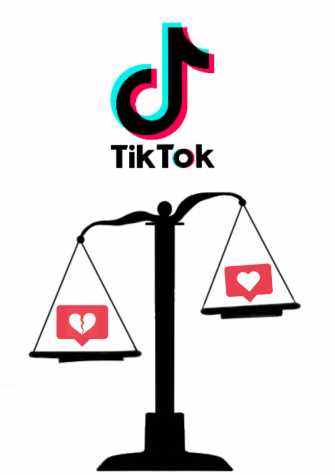
Although TikTok may cause borderline addiction, I don’t feel like I am or ever will be completely mentally controlled by the app. In my opinion, TikTok is an entertainment app more than anything else and I view it as Youtube with funnier and fast-paced content, which I appreciate. I have seen students from East gain a respectable following on TikTok, but personally, I’m not willing to put that much time and energy into a social media app. TikTok, for me, is really just the new and improved Youtube, with more accessible social media features. To anyone who is struggling with controlling their time on the app, I would recommend deleting another social media app to download TikTok. For example, I deleted Snapchat when I downloaded TikTok to minimize my time spent on a screen, and I feel like I made the right decision.
The way I see it, TikTok creates a community for Generation Z, and students my age are able to connect with each other on different issues, topics, and trends. Especially during COVID-19, teenagers today are spending a lot of time indoors and online, which can lead to many mental health problems. However, TikTok informs students that they are not alone stuck at home during these unprecedented times, and my generation is able to laugh through these times and find happiness within each other. There are also many helpful accounts on TikTok, which I personally feel like helped me in terms of life tips. For instance, many people make videos about finance and the stock market, knowing that teenagers today aren’t really in tune with this information because it isn’t a required subject in school. There are also many accounts that give tips for college applications, such as explaining how to write a college essay.
In my opinion, I feel like TikTok has banded Generation Z together and helped teenagers of today be able to have a strong impact on pop culture. Songs like Stunnin’ by Curtis Waters, Heather by Conan Gray, and Campus by Vampire Weekend have risen to fame largely due to their presence on the app. After collectively having acquired a generational obsession with the Disney movie Ratatouille, artists with passions in music, dance, and film have taken their talents to TikTok. Videos of original songs written focusing on Ratatouille, Playbill cover art, and original choreography pieces have led to a Broadway benefit called Ratatouille: The TikTok Musical. I personally appreciate TikTok as a modern and fun way to stay connected with people my age and get a laugh once in a while, especially while we are stuck at home because of COVID-19 right now.
My TikTok Addiction
The time is 9:30 on a Monday morning. Instead of rushing to get ready for school, I unlock my phone, immediately tapping on the Tik Tok app. I spend every spare moment–between classes, on lunch breaks, and after school– on that app, mindlessly scrolling through videos, double tapping to give a like and leaving comments. I have an addiction, and I honestly don’t want to get rid of it.
Even though it takes up all my time, I wouldn’t have it any other way. Tik Tok has influenced virtually everything about me, from my humor to the way I look and act. I find myself constantly referencing tik toks, and all my jokes are based off of what I see on the app. I became a VSCO girl in 2019, screaming “and I oop- sksksks,” and “save the turtles” on a daily basis. I spend a lot of my time trying to come up with funny, relatable content to post, hoping to get likes and one day go viral.
I’ve picked up certain slang and mannerisms as well; for example, I slap my hand on my mouth whenever I find something funny, a common trend on a tik tok. Walking around the house, I subconsciously start doing the renegade and hit the dice roll, or do other tik tok dances. The same 15 second clips of sound constantly replay in my mind as I go about my day.
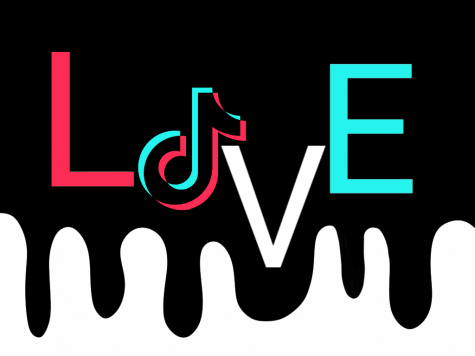
Tik Tok has shaped me into the person I am today, and without it, I wouldn’t know who I am. Each video on the for you page is specifically catered “for you,” and I find the content relatable and hilarious. The app contains a wide variety of videos, varying from informational content to humorous, to just fun dancing videos. The complex algorithm has introduced me to so many new things. I have broadened my music taste, listening to artists like Megan Thee Stallion and Clairo, of whom I had never heard of before Tik Tok. The app has taught me new skills, such as cooking and photography, and given me helpful tips to broaden my horizons and explore those skills!
The platform gives one the ability to connect with those who are also interested in the same topics through the comment section. Even if I only interact with a person who is a complete stranger once, it feels as though I have known them forever, and we connect on a deeper level.
Along with these quick little interactions, TikTok also opens up the possibility of making long lasting “internet” friendships. Some of my closest friends have been introduced to me through TikTok. One of my internet friend groups all share a common interest in the same musical artist, and after meeting in a video comment section, we decided to exchange our other socials and became close friends. Another group of my internet friends all met on a TikTok live and upon discovering we had a lot in common, made a groupchat.
Being on TikTok also provides an outlet to escape from the pressures of school and daily life. Scrolling through the for you page is relaxing, and seeing others’ videos about how they go through the same things provides comfort. I can post my own videos, complaining or just talking about my life, and find that others relate to a lot of the same things I do. That sense of community and relaxation is what makes TikTok so great. You get to escape the real world, and enter into a virtual, peaceful, and entertaining world where you can express yourself freely and connect with others.
That’s not to say TikTok doesn’t have its flaws; it is full of them. TikTok can be very damaging to mental health, with its videos of unrealistic beauty standards, and tons of clickbait videos telling people how to get rid of their “insecurities.”
However, it also contains videos that have the opposite effect. Accounts like @feelempowered, started by Miranda Rosenbaum (’23), an East student, use TikTok to uplift and inspire others to be confident in themselves. This account, and others like it, help to combat the hate and harmful effects of TikTok, making the app a far more positive and better place.
Overall, TikTok’s positive aspects outweigh the negatives. It affects one’s personality, humor, and appearance. It creates a safe space for people to escape stress, forming a virtual world specifically catered to the user. TikTok’s variety of informational, humorous, and uplifting videos creates the opportunity for people to learn new skills as well as post their own content. The app fosters connections with others, whether they be short term or long term. So I’ll continue to spend every waking moment on TikTok, feeding into my addiction with no regrets.
Why I Don’t Have TikTok
As crazy as it sounds, I do not have TikTok. While I am saying crazy things, I do not have an interest in downloading TikTok. I have silently watched it become a national trend, causing a domino effect not just in the US, but around the world.
While I do recognize that there are several interesting videos on TikTok, like sixty second recipes or a dog jumping on his hind legs across NYC, it seems to me like the majority of TikTok is simply videos of strangers dancing to songs that were made popular solely on TikTok. For me, it is exactly the same as Dance Dance Revolution, where you try to copy someone else’s dance moves to an unfamiliar song, and then share with the world.
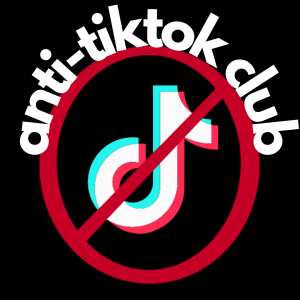
It seems as though TikTok has caused more harm than good, at least recently. In February of 2019, TikTok was forced to pay a large sum of money in fines for collecting personal information from children under the age of 13. Additionally, on a less legal level, TikTok has encouraged many to participate in challenges that are incredibly dangerous. These include the skullbreaker challenge, which involves tripping someone so that they fall backwards and land on their head, and the penny challenge, which involves putting a penny between a phone charger and a wall outlet. The skullbreaker challenge has caused many serious injuries that have resulted in hospitalization, and the penny challenge has caused many fires worldwide.
Finally, TikTok has added to the lethal army of social media networks that have forced our generation to be so attached to our phones. No longer do we take in the sights of our world, but instead we take pictures in an attempt to take in the followers of the world. Every passing moment in our lives has transformed into a constant search as to where our next post will come from. In my opinion, TikTok is just another platform that encourages people to grow more attached to their phones and less attached to reality.
Influencers on TikTok
An individual’s FYP on TikTok may be characterized by their liking, however, due to the application’s ability to spread fast information and appeal to groups, influencers have taken over the application and the ability to make money from posting short videos has grown in popularity. Although fame used to be limited to movie stars and Grammy contenders, TikTok gives all creators the opportunity to live a famous life- followed by paparazzi and published in celebrity gossip magazines.
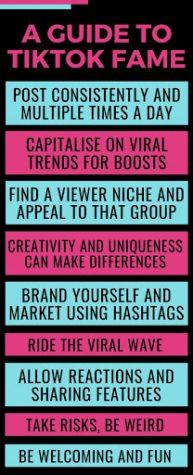 From a regular High School student in Connecticut to the most followed person on TikTok with over 100 million followers, sixteen-year-old dancer, Charli D’Amelio, has a Dunkin’ drink named after her and a number of devoted fans. Other top celebrities that credit TikTok for their fame include Addison Rae, Bella Poarch, Dixie D’Amerlio, among many others.
From a regular High School student in Connecticut to the most followed person on TikTok with over 100 million followers, sixteen-year-old dancer, Charli D’Amelio, has a Dunkin’ drink named after her and a number of devoted fans. Other top celebrities that credit TikTok for their fame include Addison Rae, Bella Poarch, Dixie D’Amerlio, among many others.
Many grew in popularity due to TikTok creator houses — mansions where TikTok influencers live together and create videos for their personal and group social media platforms. However, the idea of a content house is not new and was used during YouTube’s prime as collaboration houses like Jake Paul’s Team 10 and the Clout House appeared years before. TikTok creator houses formed due to users’ desire to be like popular Gen-Z personalities and TikTok’s exponential growth in the number of users. The Hype House, one of the first TikTok creator houses, was formed in December 2019 as a group of social-media influencers who joined forces to support their TikTok stardom and create even more viral content. From there, more houses formed with more creators, and their popularity took off from “small-town” publishing users to group icons and widely recognizable faces.
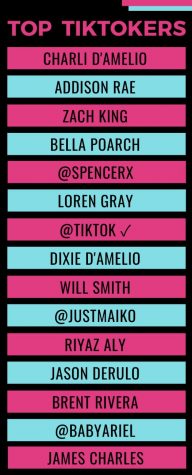 Back in July of 2020, TikTok announced their new initiative The Creator Fund Program, a resource that promised to pay eligible TikTokers for their videos. At the start, the program planned to distribute over $200 million to users over the age of 18, who met the amassed followers, views, likes, and legal age requirements. The Creator Fund was a new way for creators to make money by dancing, publishing funny or relatable videos, and competitively trying to turn followers into loyal fans. Many larger corporations have partnered with creators for branding initiatives and advertising- a two way street of shouting out brands for their materials while brands give free merchandise to their creators.
Back in July of 2020, TikTok announced their new initiative The Creator Fund Program, a resource that promised to pay eligible TikTokers for their videos. At the start, the program planned to distribute over $200 million to users over the age of 18, who met the amassed followers, views, likes, and legal age requirements. The Creator Fund was a new way for creators to make money by dancing, publishing funny or relatable videos, and competitively trying to turn followers into loyal fans. Many larger corporations have partnered with creators for branding initiatives and advertising- a two way street of shouting out brands for their materials while brands give free merchandise to their creators.
In order to become famous on TikTok, an individual must have content that is posted daily that fits their message they want to give off by identifying a niche and a specific follower hub.
TikTok has transformed the entertainment industry. Now, some of the most popular creators have become “overnight” millionaires and some of the most famous faces across the globe.
Popular Creators at Cherry Hill East
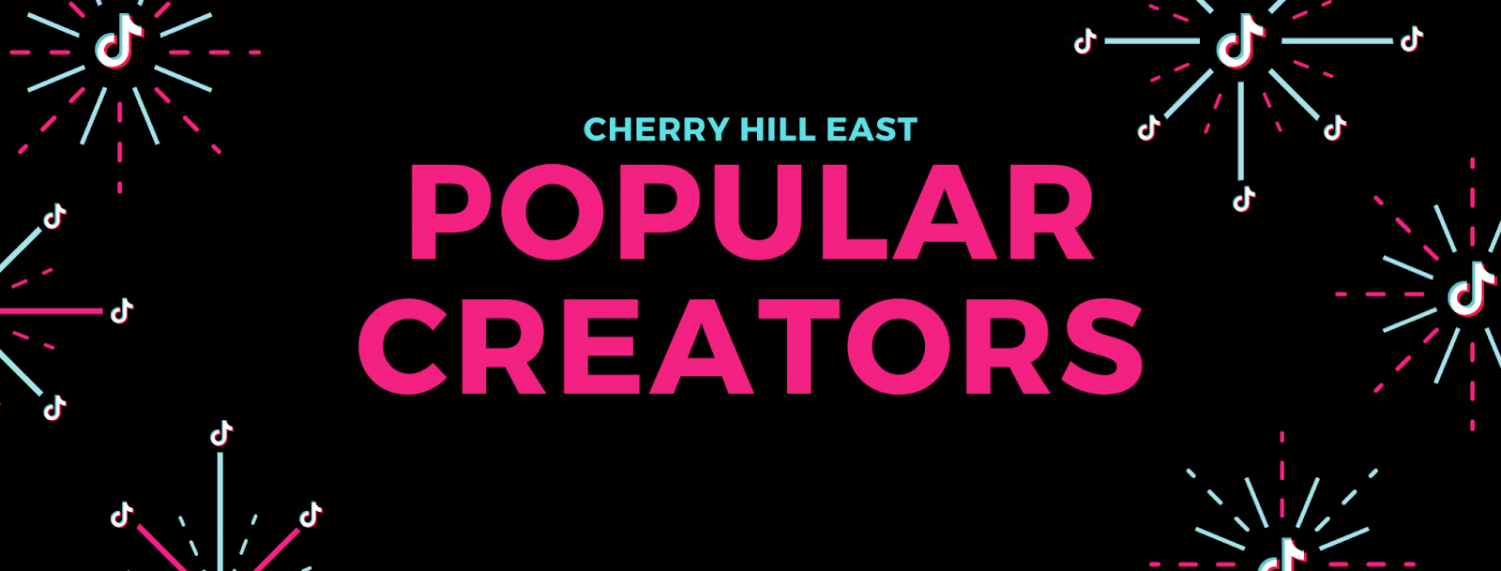
@CS99TV gains over 1 million followers from sports-related content
Adam Yu (’19) and Robert Scwitzer (’20) are the creators of the @CS99TV TikTok account. They mainly post sports related content, including sports challenges and tricks. Also, they typically aim to have comedic content along with their sports videos.
Interview with Adam Yu (’19):
1. Why did you first start making TikToks?
We started making TikToks as a way to pass time during the pandemic, it really just gave us something to do when there wasn’t much else we could do during that time.
2. What is your favorite part about making TikToks so far?
Honestly it’s really crazy to see the reach that TikTok has. Even just going around Cherry Hill and different parts of South Jersey, we get recognized a ton and that’s been really cool to see. Not even from the standpoint of thinking we’re famous, but to hear that we’ve made someone’s day just by saying “hi” to them is extremely humbling. We really embrace having a platform to influence others for the better.
3. Has creating TikTok’s helped you or taught you anything important you can use in life?
As business majors, we always stress the importance of networking. Through TikTok, we’ve been able to meet and network with people that we never would have if we didn’t make the TikTok account. We now have contacts in Sports Center, Sports Illustrated, and Body Armour among many others. We’ve also been able to connect with some pretty big creators and athletes looking to collaborate.
4. What made your TikTok account first blow up?
To be honest our first TikTok we posted blew up. I think we were able to post unique videos that nobody has ever posted before. To an extent, you’d have to come to our account to see the type of videos we post since nobody else does it. And having experience with YouTube and social media algorithms, we were able to combine that knowledge with our unique content to make a pretty successful account.
5.Do you have any goals in the future relating to TikTok?
Obviously we’re really close to hitting 1 Million followers, and that would just be really cool to see. Other than that we’re looking to partner with some big brands as well moving forward.
@cs99tvTic tac toe: tennis vs lax… @brendonporras ##foryou ##fyp ##foryoupage ##trending ##viral ##tennis ##lacrosse ##tictactoe ##challenge ##xyzbca ##funny ##sports♬ original sound – CS99TV
@EstherTian creates positive and entertaining content on TikTok
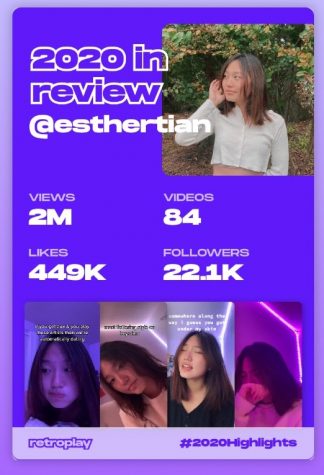 Esther Tian (’22) gains views by making entertaining content for her followers. In an interview with Tian (’22), she describes her personal experience with posting on TikTok.
Esther Tian (’22) gains views by making entertaining content for her followers. In an interview with Tian (’22), she describes her personal experience with posting on TikTok.
Interview with Esther Tian (’22)
1. Why did you first start making TikToks?
So for me, I started TikTok hoping to get views for my singing. Now I just post whatever I want including fun trends, singing covers, dance covers and positive content for people to relate to. Not so long ago, I also posted a couple videos about my faith because I wanted to be more vocal about it, and I also posted a “mental health check” which really helped a lot of people. Overall, I just want to post things that make other people happy and post what makes me happy.
2. What is your favorite part about making TikToks so far?
Making friends! I’ve made so many friends and I feel like a lot of people look down on making friends online but I’ve met so many down to earth and genuine people. I talk to them almost everyday and I make a groupchat with some of them and we’re all from all over the place, even other countries. I made two really close friends and we are even sending each other Christmas gifts!”
3. Has creating TikTok’s helped you or taught you anything important you can use in life?
Yes it definitely has. I learned that being confident and strong-minded is super important. I tend to compare myself with other people but having that negative mindset can really affect your confidence, so I try my best to stay strong minded. another thing I learned is speaking badly about other people is not good. I think we all know that and tend to do it but unless you have a valid reason to speak badly about someone, then you shouldn’t say anything at all. I also learned that not caring about what others think is essential. It’s an obvious life moral, but TikTok really helped me see life from a different perspective, especially after meeting new people. Meeting new people from other places allowed me to see how others think and I also met a lot of insanely strong-minded people, so they helped me a lot!
4. What made your TikTok account first blow up?
Before, I made an account on Instagram but it didn’t really get noticed, so one day, I impulsively posted a singing video that ended up going viral. After that, people requested me to post more so I decided to do that on TikTok. I feel like it’s easier to get noticed on TikTok because of its algorithm. Now, I’ve made a lot of friends through the app and also met someone who wanted to help me produce my own music in the future!”
5. Do you have any goals in the future relating to TikTok?
At this point, I just do it for fun because it makes me happy. I’m thinking of writing music in the future so I might use my platform to promote it and we will see from there!
@esthertianhad to hop on the trend♬ original sound – esther
@TylerLeomporra creates comedic content on TikTok
Tyler Leomporra (’21) uses his platform to make comedic content and he primarily does it for entertainment. In an interview with Leomporra, he spoke on different aspects of his TikTok account.
Interview with Tyler Leomporra (’21):
1. Why did you first start making TikToks?
It was a new platform and a way for me and my friends to make funny videos.
2. What is your favorite part about making TikToks so far?
The positive feedback from people, people who you don’t know around the world. It is crazy when your video reaches people from say Australia.
3. Has creating TikTok’s helped you or taught you anything important you can use in life?
Do what you want. If you like putting out content that you like, people are going to respond positively.
4. What made your TikTok account first blow up?
My first video was in school, sophomore year. We made a TikTok during lunch and it blew up from there.
5. Do you have any goals in the future relating to Tik Tok?
No, I don’t make TikToks anymore
Watch the TikTok video below on Tyler Leomporra’s account taken at Cherry Hill East’s homecoming dance in 2019.
@tylerleomporraWhen you got the whole school in on it🤠 ##hitthedale ##freeburke ##StayFresh @irwinswag ##hoco♬ Black Beatles – Rae Sremmurd
Refer to page 5 of the December 2020 Eastside Issue to see how Miranda Rosenbaum (‘23) has used her TikTok platform @feelempowered to promote body positivity and self empowerment for users across the application
